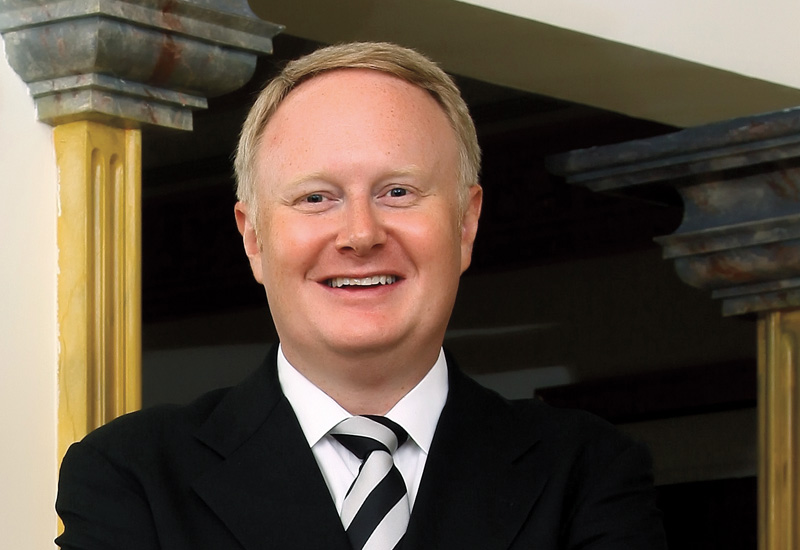Food first
One of his first focuses will be to enhance the hotel’s food and beverage performance. “We are trying to attract more Doha residents into the hotel, especially the outlets.” The Grand Hyatt has seven outlets, including the Rocca Italian and Isaan Thai speciality restaurants, plus the Biscotti Italian ‘café and retail shop’.
The menu for The Grill all-day diner has just been revamped, and the hotel is now staging monthly ‘Wig Parties’ at which all participants have to wear a wig.
“I want Doha residents to think of the hotel as a fun place to visit, not as a corporate hotel where you only go for cocktails,” says Franzen.

| Advertisement |
Another F&B initiative of his is to create a new delivery menu for use by guests and tenants at the hotel’s 91 two-, three- and four-bedroom villas, which are not only a favourite among Gulf families, but also with long-term (six-monthly and annual-let) corporate guests on contract work in the city.
“Arabic families are ordering food from outside — it’s probably a price issue,” Franzen comments. “But there’s no reason why we can’t serve pizzas and burgers at a very competitive rate. We don’t want McDonald’s and Pizza Hut to take all the revenue!”
The new GM is also getting to grips with the hotel’s Jaula Spa & Club. With a strong background in finance, revenue management and cost control, Franzen is implementing a policy of ‘elastic pricing’ at the spa, meaning that prices and packages will now change according to whether it is a peak or a quieter period for demand.
Market dynamics
Franzen’s previous posting was as GM of the Grand Hyatt Muscat, which won a string of awards under his leadership. He also saw the hotel improve from seventh to first place on Tripadvisor. “That hotel is printing money now, but at the beginning it was very tough,” he says. Franzen is finding Doha quite a contrast to Muscat.
“[In Muscat] there was so much demand, but so little supply,” he comments. “Doha reminds me a little bit of Dubai many years ago. You can feel that this city is on the brink of exploding with all the projects and all the hotels. It’s a very vibrant and energetic place.
I came here for a job interview with Sheraton in 2001 and there was nothing. Now, 12 years later, you have these major conferences here in Doha, big sports, medical and political conferences.” The Grand Hyatt hosted the prestigious COP 18 UN climate change conference last year.
Another difference that is front of mind for Franzen is the question of workforce localisation.
“In Muscat you have the large factor of Omanisation, which is a good thing. I mean, we should give back to the community, by hiring and training their people, right?”
While in Muscat, Franzen was GM throughout the modest Arab Spring that took place there, which found its most vocal manifestation in Omani employees’ demands for better pay and benefits. The Grand Hyatt Muscat was one of the few hotels not to be temporarily closed down.
“The reason was that we already had five percent of the senior management who were Omanis, so we had a bit more credibility,” he explains.
Now in Doha, Franzen has picked up the torch of Qatarisation. “I had a chat two weeks ago with the Ministry of Labour and there seems to be a concerted effort to drive this forward, because they understand that what is happening here is not sustainable.”
The result of this meeting is that the Grand Hyatt Doha, which currently has no local national staff, is now creating an induction course for young Qataris.
“The Ministry of Labour is extremely supportive. They will fund the training programme and pay the salaries. We’re going to have a workshop when we will invite young Qataris to come and find out what hotels are all about.
We have identified certain positions that can be easily filled by Qataris, such as government relations, sales and rooms division-type jobs. There is no reason why we should not find the right calibre of people who would want to do that, at least for some part of their career.”
Article continues on next page ...









 Search our database of more than 2,700 industry companies
Search our database of more than 2,700 industry companies









